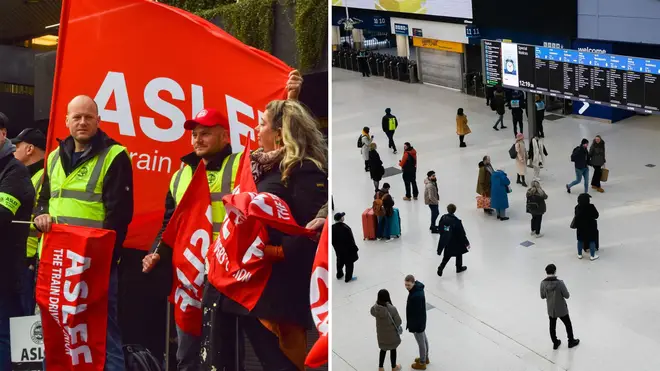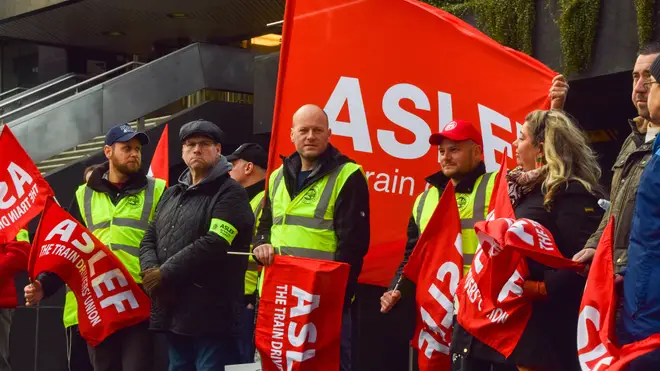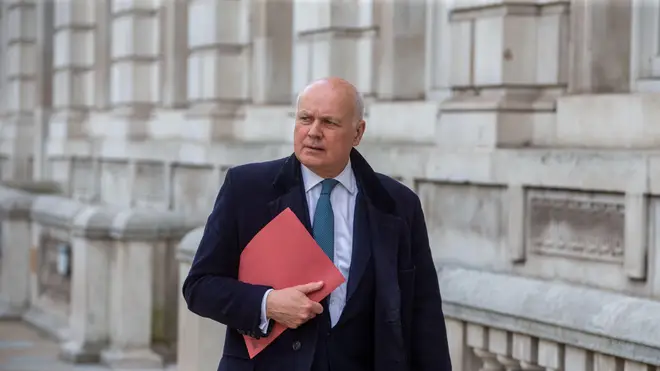
Ian Payne 4am - 7am
29 January 2024, 11:02

Rail bosses have received pay rises and bonuses of up to £1 million in the last year, despite failing to enforce laws intended to minimise the impact of industrial action, it has emerged.
Arriva, which is a subsidiary of the German state rail operator Deutsche Bahn, gave its top executive £1,086,342 in pay and perks in 2023 - a 61 per cent rise, a Mail audit found.
The company runs Chiltern, CrossCountry, Grand Central and London Overground.
Overall, there was a 54 per cent increase in directors' pay following the revival of bonuses after the pandemic.
However, CrossCountry is yet to reinstate its full pre-Covid time-table and still suffers overcrowding.
It comes as rail passengers face nine days of travel chaos, with strike action causing severe disruption to services.
None of the 18 rail operators involved in the strikes will be meeting their legal requirements under new laws.
Read more: Rail chiefs failing to uphold minimum service laws as Britain faces nine days of rail strikes hell

The audit also found that the chief executive at former operator Abellio UK was handed a 35 per cent increase last year while bonuses of £1.3 million were shared by two top executives at FirstGroup.
A bonus of £540,000 was also paid to previous Go-Ahead chief executive Christian Schreyer in 2022.
The figures have emerged as drivers' union Aslef begins its industrial action as part of an ongoing pay dispute.
Passengers have been urged to check before they travel due to changes to services.
It comes after legislation was passed at the end of 2023 allowing operators to insist on a minimum level of service during strikes.
But only taxpayer-owned LNER tried to enforce it before backing down due to Aslef threatening to extend its strike by five more days.
Tory MP Sir Iain Duncan Smith said: "If the law is there, then you use it. All the public want is a sense of what the minimum service will be – not leaving it in the hands of the unions to decide."
Meanwhile, Greg Smith, a member of the Commons transport committee, said: "The public will be raising an eyebrow at the spectre of bosses taking large rewards whilst not meeting their legal duty to maintain service levels.
"The government has to exert whatever pressure it can to ensure bosses are unable to be paid enormous salaries and bonuses until they earn them by delivering the service customers expect and the law says they must provide."

A Department for Transport spokesman said: "Aslef's leadership alone are responsible for the disruption expected next week."
A spokesman for the Rail Delivery Group, which represents operators, said: "Minimum service level legislation is one of many useful tools for managing strike disruption, but it is not a silver bullet.
"Operators' guiding principle is always to make sure they can offer the best, most reliable services possible for their passengers."
FirstGroup - which owns Great Western Railway, Lumo, Hull Trains, plus a 70 per cent stake in South Western Railway and Avanti West Coast - said 2022/23 bonuses were driven by "strong financial performance" while Arriva said executive pay was linked to operations across Europe.
Go-Ahead said that its executive pay "reflects the scope and scale of our business".